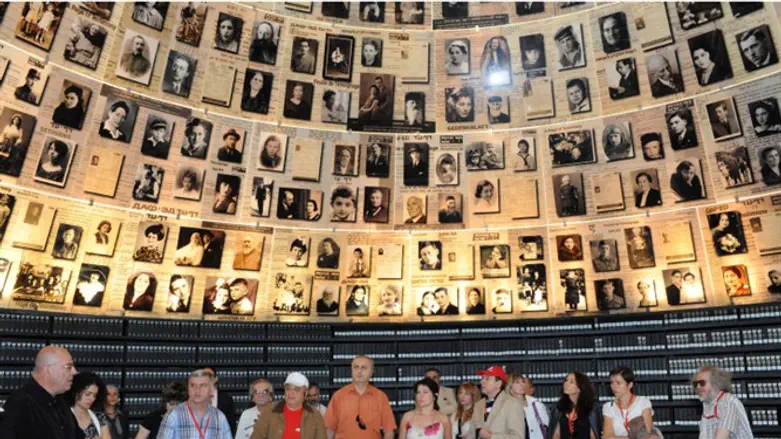
Karen Alkalay-Gut, the author of a poem which was displayed in a photo exhibition at Yad Vashem Holocaust museum and, after arousing controversy, was later removed, apologized if her poem was hurtful to anyone.
The poem, “Sepia,” was on display in Hebrew and English at a Yad Vashem exhibition called “Flashes of Memory - Photography during the Holocaust.” It read as follows:
“No matter how much we enlarge it,
That photograph snapped by a German soldier
Of my grandmother in Lida, 1916,
Remains perfectly clear. Her eyes
Register her cold measure
Of the soldier who could decide
To shoot her instead of her
Picture if that
Was his hobby
Instead of photography.
This is what war
Is like - I taste her fear
Even though I'm seeing her
Now from the eyes
Of the oppressor.
And I know the shame of both."
The poem drew criticism after it was interpreted as hinting that Israel was an “oppressor” of Palestinian Arabs in the same way that Germany oppressed the Jews.
Following the backlash, Yad Vashem removed the poem from the exhibition, explaining, “A number of visitors to the exhibition brought to our attention the fact that the poem ‘Sepia’ shown at the exhibit could be interpreted as if it were intended to make a political statement.”
“As this, of course, was not the intention, we decided to remove the poem from the temporary exhibition. We are sorry that the things were understood differently and wish to emphasize that, on principle, Yad Vashem opposes all political use of the memory of the Holocaust.”
Alkalay-Gut, professor emeritus of English at Tel Aviv University, later commented herself on the controversy, telling Israel Hayom, “I did not mean to offend, and I ask forgiveness if I hurt someone.”
She said that the poem was not intended as a political statement, though it was possible to read it as such.
“It’s a personal poem, I write from the heart, and it’s not a political poem, despite the fact that there are many ways to read a poem - and it could be read like this.”
“If this poem is hurtful to someone - then it should be removed from the exhibition," she said. "I did not mean to offend anyone, Heaven forbid. I lost all my family in the Holocaust, and if it offends someone then I have no right to say something else. I think Yad Vashem museum needs to take care in the matter, and if it appears to someone as political and insensitive - the poem must be removed from the exhibition. Therefore I apologize and ask forgiveness if it hurt someone. I very much want to offer them another poem that maybe will fit them more."
“I write a poem from the heart and not from politics. It’s a personal poem, not political. I did not intend that interpretation [Israel comparable to Nazis], but something else. I think that it is indeed possible to read the poem without a political lens. I meant that I know what it is to be exploited and I know what it is to exploit, despite the fact that a poem can be interpreted in many ways and it is also possible to read it as political,” she concluded.